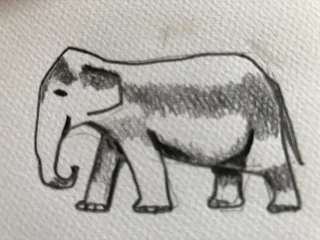Japanese follows English. 英語の後に日本語が続きます。
 |
| Japanese dinner for "Metabo (big people)" |
This is a meal I made a week ago for my husband when he was diagnosed with "Metabo," i.e., obesity. Clockwise from the top left;
- steamed pumpkin;
- sesame sauce salad of spider mustard, wakame seaweed and aburaage (deep-fried tofu);
- niboshi (dried small sardine used for making miso soup);
- grilled saury;
- miso soup with tofu and mushroom;
- stewed chicken with potato, egg and burdock roots; and
- brown rice in the center.
"Metabo" means in Japan people who have metabolic syndrome. Medically speaking, those meeting the following both criteria have metabolic syndrome in Japan:
1. Waist ≥ 85cm for men, ≥ 90cm for women, and;
2. More than one of the following applies:
(1) Elevated Triglycerides ≧ 150mg/dL and/or HDL cholesterol < 40mg/dL;
(2) Systolic blood pressure ≧130mmHg and/or diastolic blood pressure ≧ 85mmHg; or
(3) Fasting hyperglycemia ≧110mg/dL
This is his fault. He's been eating potato chips, chocolates, ice cream and other greasy snacks every day A LOT after dinner in more than ten years!!
I used to warn him, but some time ago gave up because he wouldn't listen. What made things worse is that as he's so-called "half," i.e., his father is American while his mother Japanese, some Japanese doctors avoid making diagnoses saying that the Japanese criteria may not apply to him....
But he's BIG except for the face, which is another reason for nobody to notice how he’s fat. His belly looks like three, NO, six month pregnant as a result of having eating not only too much, but also too much trans fat and not exercising at all....
By the way, the below are six types of ingredients I always try to eat in each meal to stay healthy. My mom often said this when I was a child.
1. Deep colored vegetables - vitamin A (pumpkin)
2. Light colored vegetables- vitamin C (spider mustard, potato, burdock root)
3. Meat, fish, egg, tofu, fermented soybeans - animal or plant protein (chicken, fish, egg, tofu)
4. Rice, bread, pasta - carbohydrates (rice, pumpkin)
5. Milk, small fish, seaweed - calcium (dried sardine, seaweed)
6. Oil, butter, margarine - fat (sesame)
Can you see the meal in the photo contains all these types of nutrition?
He’a stopped eating junk food once for all. (Instead, I steamed pumpkin, a zero-fat dessert!) The next medical check up will be in one year. We will work together to reduce his waist and cholesterol. Wish us luck!!
到頭、夫がメタボ認定されました。メタボの定義を調べてみました。
(内臓脂肪蓄積)ウエスト周囲径が、男性 ≥ 85cm、女性 ≥ 90cmを超え、以下の項目の内、二つに当てはまるとメタボだとのこと。
- 高トリグリセリド血症≥ 150mg/dL かつ/または 低HDLコレステロール血症< 40mg/dL
- 収縮期(最大)血圧≥ 130mmHg かつ/または 拡張期(最小)血圧≥ 85mmHg
- 空腹時高血糖≥ 110mg/dL
でも自業自得です。もう何年も食後、ポテトチップ、チョコ、かりんとうなどなどのジャンク菓子をお皿一杯食べてました。何度も注意したのですがやめないんです。ですから言うのやめました。。。 そしたらこの状態に。。。
でも今回はさすがに本人も考えたようです。食後のお菓子一切やめました。蒸しカボチャはその代わりです。
ちなみに私の献立は全て母からの教え「6群の食材を全て食べる」という教えに基づいています。これだけは母に感謝してます。
第1群 緑黄色野菜
第2群 淡黄色野菜
第3群 タンパク質
第4群 炭水化物
第5群 カルシウム
第6群 脂質
今の栄養学的にどうなのかは分かりませんが、私はこれでずっと育ってきました(苦笑)。というわけで、とりあえずこれで一年頑張って、来年また検査受けます。頑張ります!乞うご期待!🐖













































